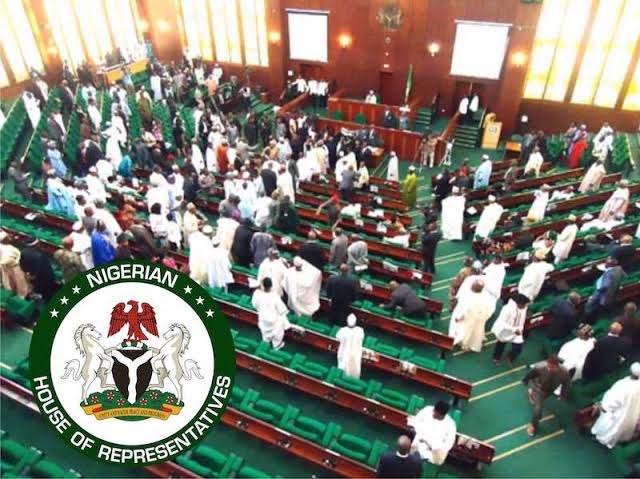A bill proposing a 10-year jail term for operators of Ponzi and pyramid schemes as well as other forms of investments have passed for the second reading at the House of Representatives.

The bill sponsored by the Chairman of the House Committee on Capital Market, Babangida Ibrahim, also proposes more regulatory powers for the Securities and Exchange Commission as well as ease state and local governments’ access to securities and facilities.
The legislation is titled, ‘A Bill for an Act to Repeal the Investments and Securities Act, 2007 and Enact the Investments and Securities Bill to Establish Securities and Exchange Commission as the Apex Regulatory Authority for the Nigerian Capital Market as well as Regulation of the Market to Ensure Capital Formation, the Protection of the Market to Ensure Capital Formation, the Protection of Investors, Maintain Fair, Efficient and Transparent Market and Reduction of Systematic Risk; and for Related Matters.’
Ibrahim noted that the current law governing the Nigerian capital market, the Investments and Securities Act, Act No. 29 of 2007, was signed into law by the late President Umar Musa Yar’adua in June 2007.
He noted that current trends in capital markets regulation, over 14 years after, have made it necessary to make major improvements to the Act to align the Nigerian market with international standards.
The lawmaker said the bill would raise the number of sections in the ISA 2007 from 316 to 351.
He listed the objectives of the proposal to include enhancement of provisions relating to efficient regulation of investment schemes and to effectively combat the proliferation of Ponzi schemes in Nigeria.
Ibrahim explained that the bill prohibits Ponzi/pyramid schemes as well as other illegal investment schemes and prescribes a jail term of not less than 10 years for their promoters.
According to him, the SEC would also be empowered to shut down such prohibited investment schemes.
Introduction of new provisions for the regulation of derivatives and commodities trading to deepen the Nigerian capital market and the economy.
A derivative is a bilateral contract whose value is derived at a future date from an underlying asset, such as a commodity, currency, interest rate, property value, company share, etc.
Derivatives are financial instruments used for hedging and risk management. Although the Commission had previously created Rules on the subject matter, the Bill contains provisions that reinforce the Commission’s powers to regulate this category of instruments.
Similarly, an entirely new part is inserted in the Bill as bedrock for the regulation of Commodity Exchanges and Warehouse Receipts by the Commission. These new provisions are essential to allow for the development of the entire gamut of the Commodities ecosystem.
The lawmaker also said there was an introduction of new provisions to regulate the activities of Financial Market Infrastructures, as well as netting and bankruptcy provisions to protect investors in derivatives contracts.
There are also new provisions on the regulation of Financial Market Intermediaries such as the Central Counterparties, Clearing Houses, Trade Depositories, among others.
According to Ibrahim, the general law of insolvency will have no effect on market contracts or action taken under the rules of an exchange, FMI with respect to market contracts, or an action taken to transfer any collateral.
KanyiDaily recalls that the EFCC had arrested 19 staff of a fake investment company allegedly floating a Ponzi Scheme that defrauded Nigerians over N2 billion.













!["You Will Be Killed If You Criticize Me In Auchi” – Apostle Johnson Suleman [Video] 23 "You Will Be Killed If Criticize Me In Auchi” – Apostle Johnson Suleman [Video]](https://media.kanyidaily.com/2025/04/05083845/Apostle-Johnson-Suleman-150x150.jpg)

